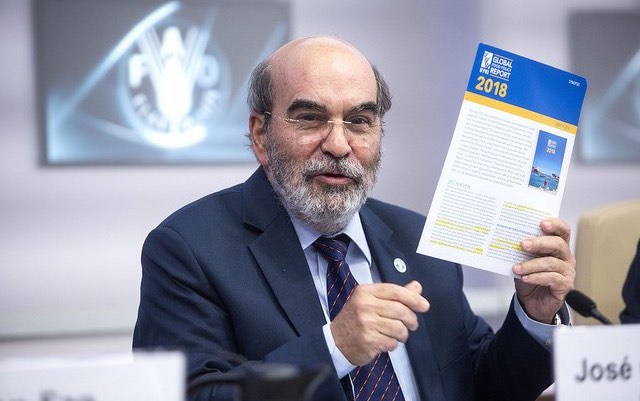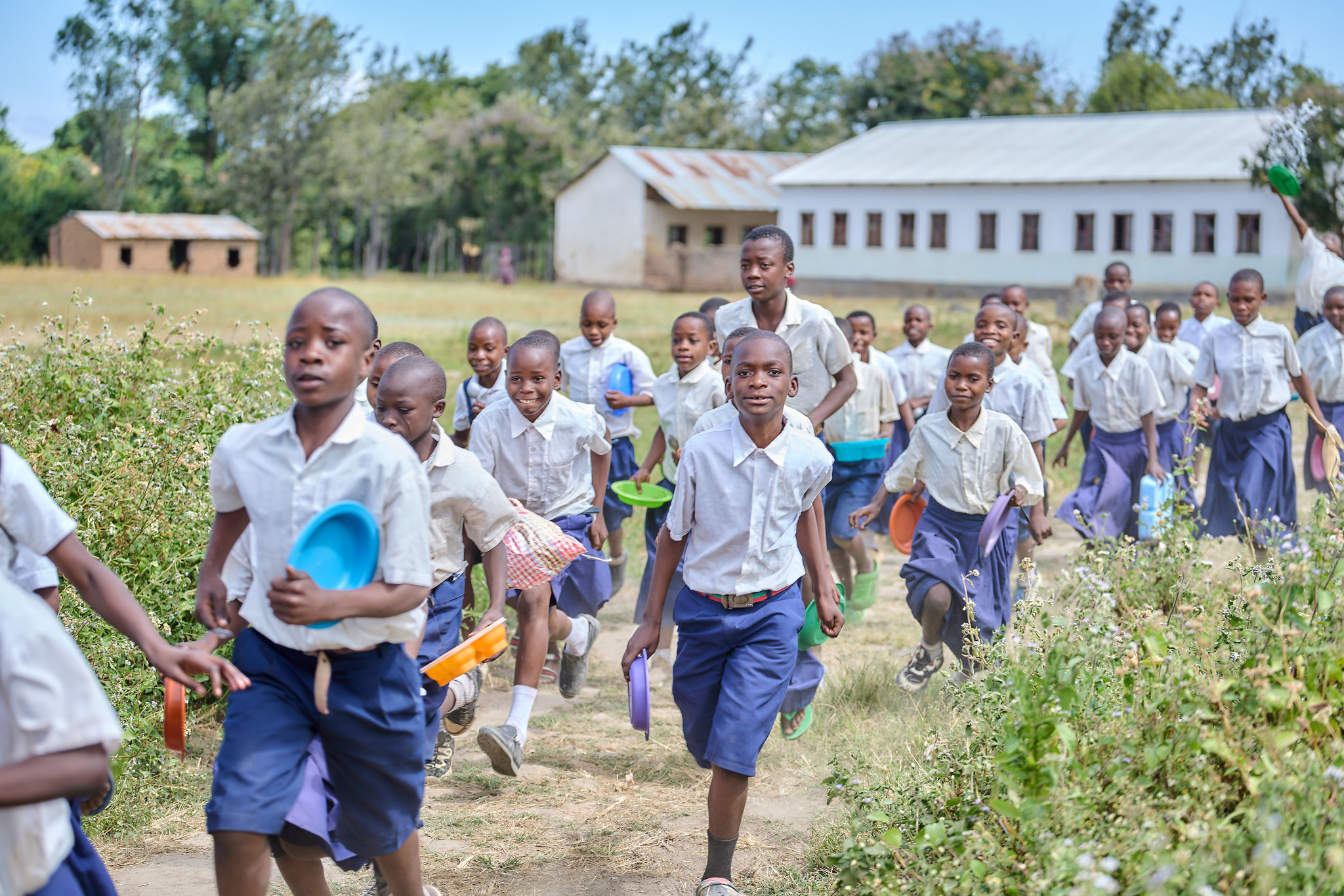“We are not dealing with [just] hunger anymore … we have a double crisis of hunger and obesity,” U.N. Food and Agriculture Organization (FAO) Director-General José Graziano da Silva said at the Rome launch of IFPRI’s 2018 Global Food Policy Report, hosted by FAO headquarters May 8.
Focusing on Chapter 2 of the Report, A Global Food System Under Radical Change, Graziano da Silva noted that much of the food exported and consumed around the world today lacks key nutrients. “The current food system was not built to promote healthy food,” he said. In addition, the lack of proper labeling and regulation, along with the misleading messages of food advertising, are fundamental challenges to promoting proper diets, he said.
While acknowledging the necessity of open trade for most countries to feed their populations, Graziano da Silva said that there is a big downside in that countries often end up importing lots of cheaper, unhealthy foods.
“Cheap food is unhealthy … partly because we subsidize staple foods like rice, and potatoes, said IFPRI Director General Shenggen Fan. “We need to change that mindset.” He agreed with Graziano da Silva that trade can pose a threat to food security by inviting poor quality, lower-nutrient foods—but, he said, trade does not have to mean unhealthy food.
Calling it FAO’s and IFPRI’s job to ensure that trade remains open and inclusive—benefiting women, youth, and smallholders—Fan explained that open trade increases the diversity of food consumption, which can help to improve nutrition; food availability and accessibility; and income.
Setting health rules for the international trade in foods is a part of the mandates of both the World Health Organization and FAO, Graziano da Silva said, and applying the same regulations to foods produced and sold locally may also help improve nutrition.
Kostas Stamoulis, FAO’s assistant director general for Economic and Social Development, described the event as “one more step in a great partnership,” and praised IFPRI as a vital partner for understanding the role of food systems in ending hunger and malnutrition.
“We must make sure we use a food system approach to tackle the challenges we are facing today—not just food consumption and production but nutrition, hunger, malnutrition, lack of micronutrients, and overnutrition,” Fan concluded.
Katarlah Taylor is an IFPRI Senior Events Specialist.







